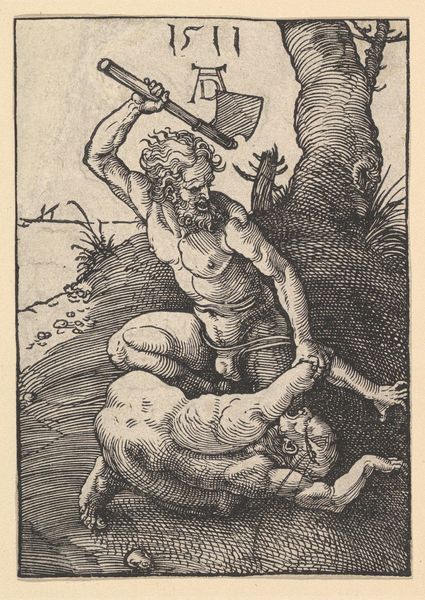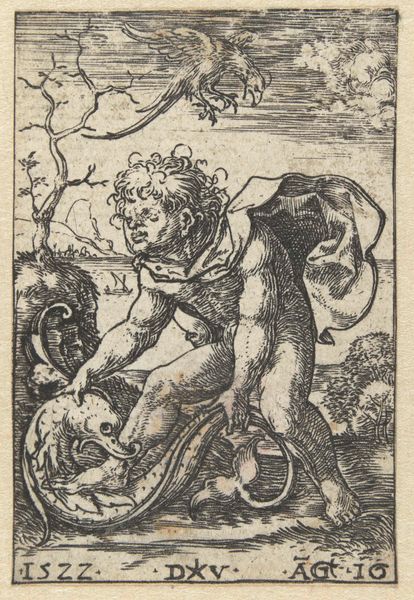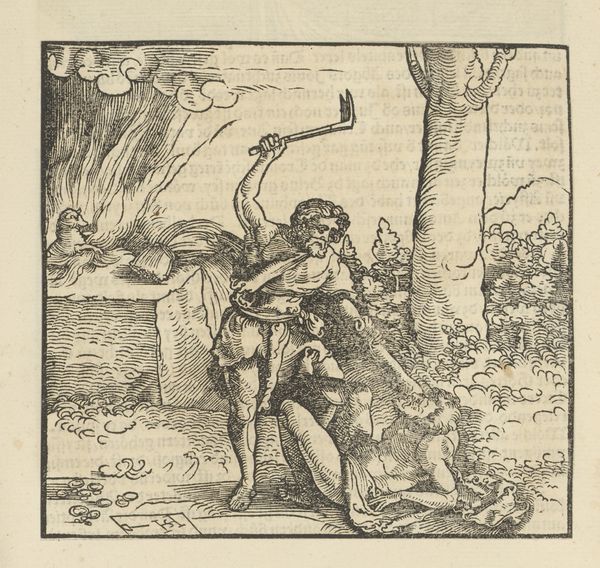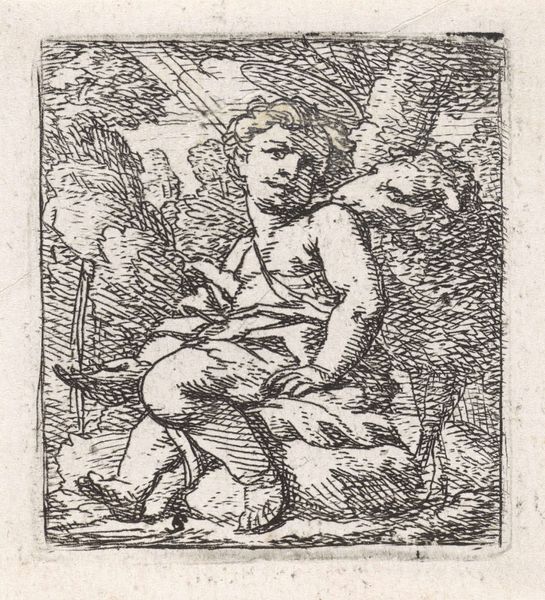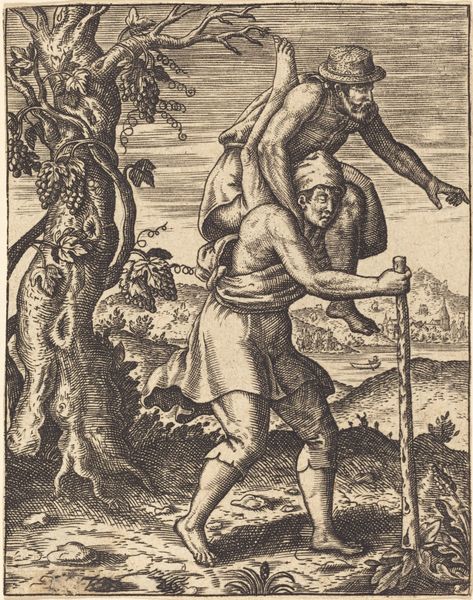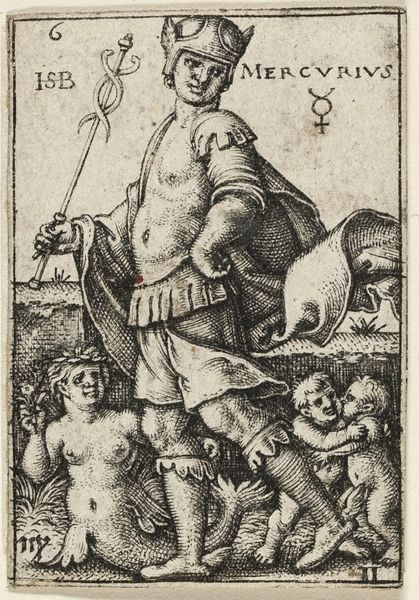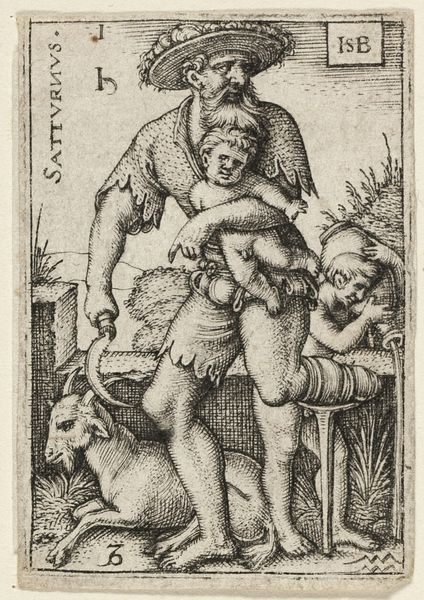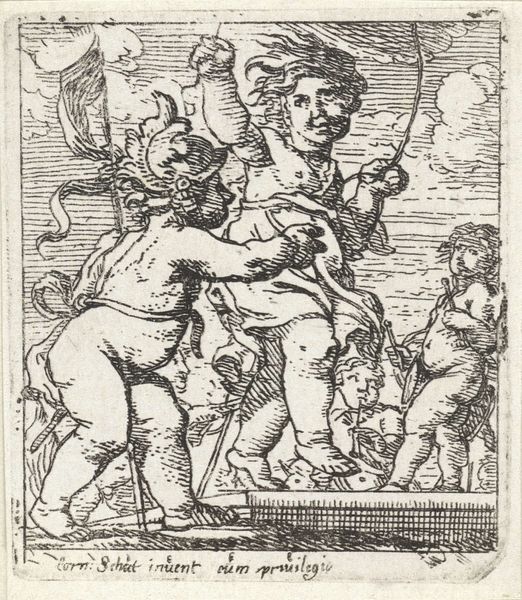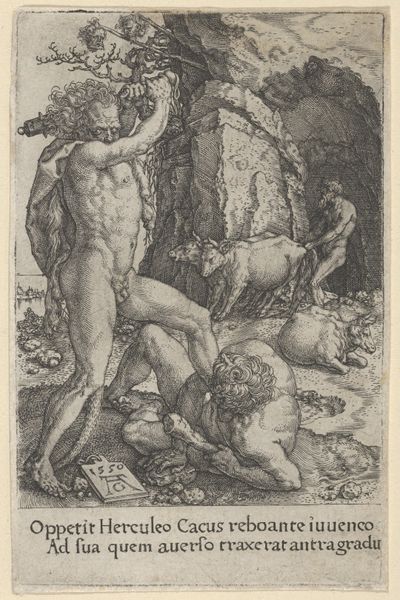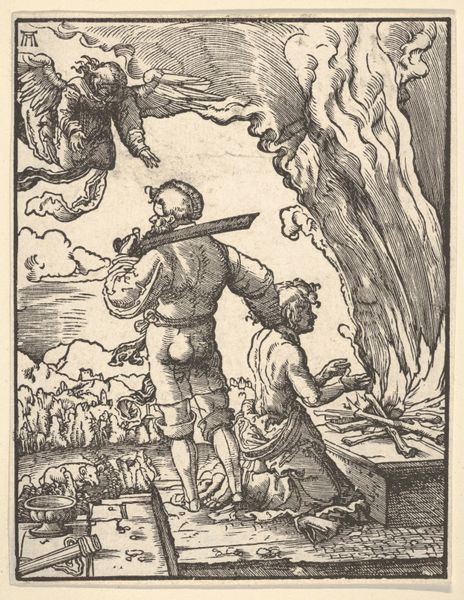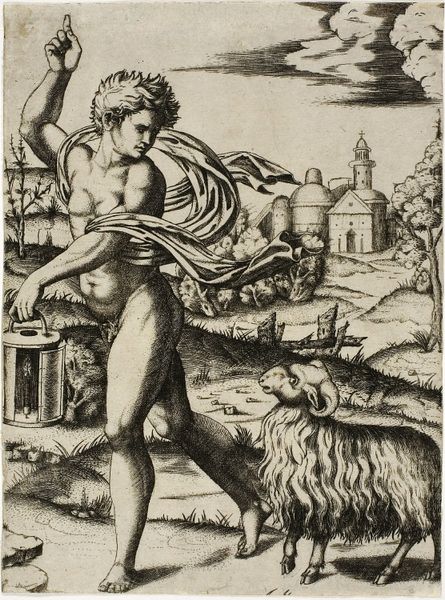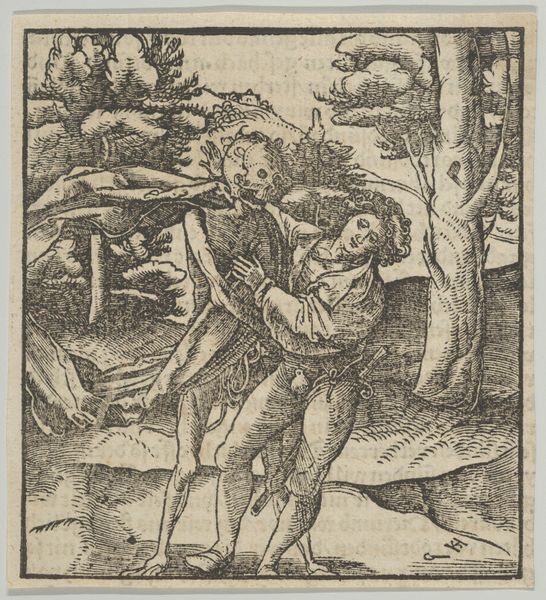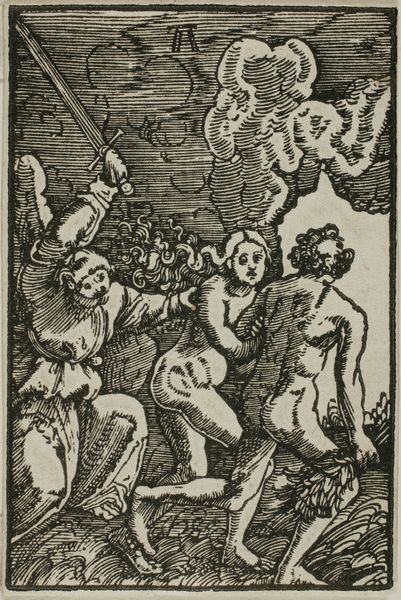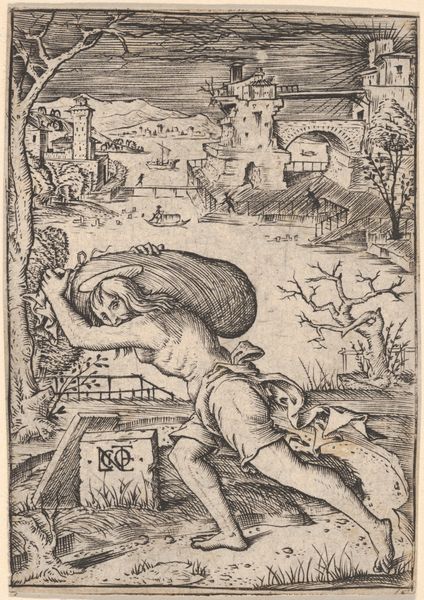
drawing, ink
#
drawing
#
baroque
#
pen drawing
#
pen illustration
#
pen sketch
#
pencil sketch
#
figuration
#
personal sketchbook
#
ink
#
pen-ink sketch
#
pen work
#
sketchbook drawing
#
sketchbook art
#
initial sketch
Dimensions: height 52 mm, width 48 mm
Copyright: Rijks Museum: Open Domain
Cornelis Schut made this small engraving of Saint John the Baptist as a child sometime in the first half of the seventeenth century. It’s an image that combines Christian symbolism with the artistic conventions of the Flemish Baroque. We see the infant John with his symbolic attribute, the lamb, in a pastoral setting. Schut was working in Antwerp. His art was influenced by the religious and political climate of the time. Following the Council of Trent, there was a strong emphasis on art serving the Catholic Church's message. Here, John is presented as a divinely appointed figure, even from childhood, in line with Counter-Reformation ideals. To understand this work, we need to research the religious history of the period, the role of Antwerp as a center of Catholic art, and the way religious orders commissioned and used art. Such knowledge can only enrich our appreciation of this engraving, helping us understand its place in its time and its role in shaping religious and cultural identities.
Comments
No comments
Be the first to comment and join the conversation on the ultimate creative platform.
